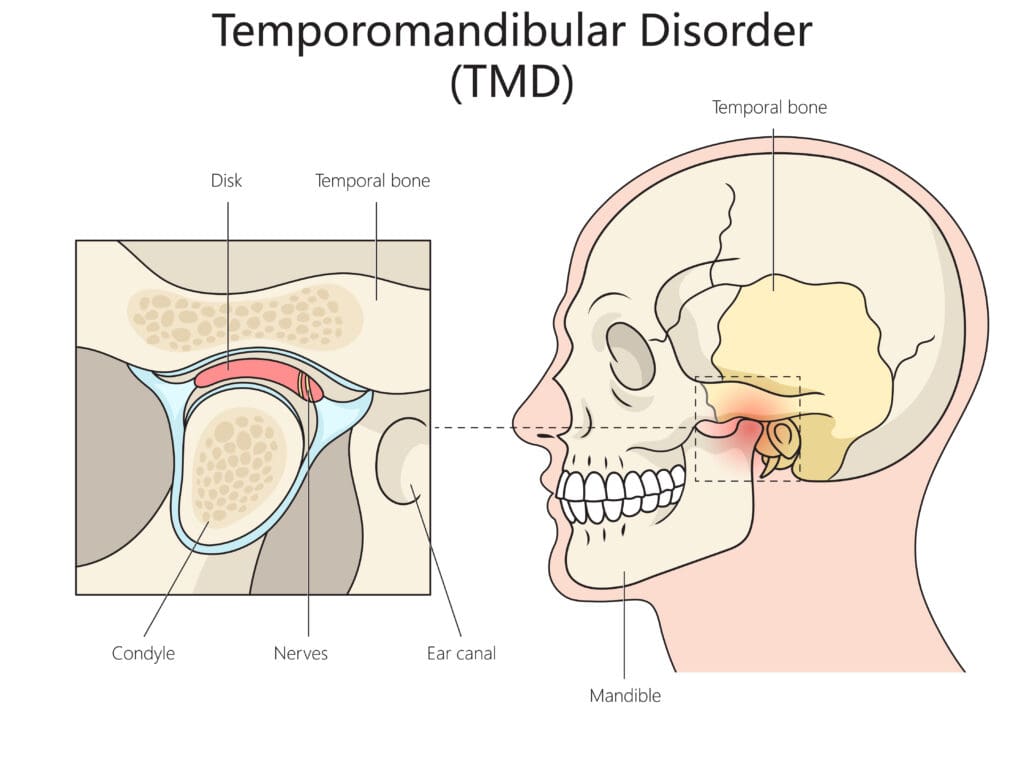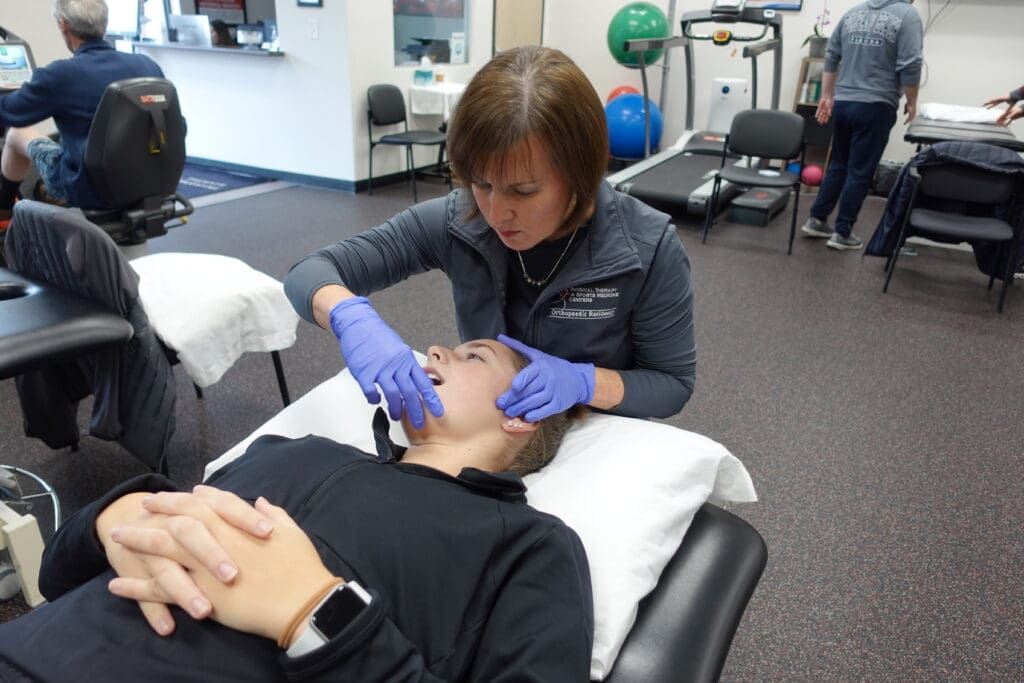PT for TMD – Physical Therapy for Temporomandibular Joint Disorder
Are you suffering from jaw pain, difficulty chewing or swallowing, frequent headaches, clicking in the jaw, and/or pain behind the eyes or neck pain? You may have Temporomandibular Joint Disorder (TMD). TMD is a common condition that limits the natural function of the jaw, such as opening the mouth and chewing, and can cause pain and other problems. TMD can be caused by a number of factors – an injury to the jaw muscle or joint, mal-alignment of the jaw, teeth grinding, arthritis and/or stress. Fortunately, it can be treated…by physical therapy, of course!
Learn about the symptoms of TMD below and how a physical therapist who specializes in TMD can treat it. We are proud to offer TMD treatment at a number of PTSMC locations around the state. Contact us to find out if a clinic in your area offers TMD treatment.
What is Temporomandibular Joint Disorder (TMD)?

Temporomandibular Joint Disorder (TMD) is a common condition that limits the natural function of the jaw, such as an opening the mouth and chewing, and can cause pain. The temporomandibular joint connects the jaw bone to the skull bone and can be injured in a variety of ways. Some causes of Temporomandibular Joint Disorder are direct trauma the jaw, dental procedures, chronic clenching or grinding, abnormal postures, degenerative changes, and more.
There is a disc located with the joint which can be abnormally pulled on by tight surrounding musculature and tendons, which can result in temporary displacement. This can result in clicking, or the jaw might not immediately return back to its normal position, leading to reduced jaw opening or being temporarily to open the jaw.
Symptoms of Temporomandibular Joint Disorder
- Headaches/dizziness
- Jaw pain/immobility/locking
- Ear pain/buzzing
- Pain behind the eyes
- Neck pain
- Difficulty chewing/swallowing
Physical Therapy Treatment for Temporomandibular Joint Disorder

Physical therapy for TMD aims to reduce clicking, pain, and immobility to allow you to resume daily activities without discomfort. A physical therapist who specializes in TMD will use a variety of treatment options, including:
- Hands-on manipulation to improve jaw movement and relieve joint pain
- Exercises/stretches to strengthen the muscles and improve function
- Posture education to correct positions that may be causing dysfunction
- Special treatment like dry needling or electro-stimulation to promote healing
